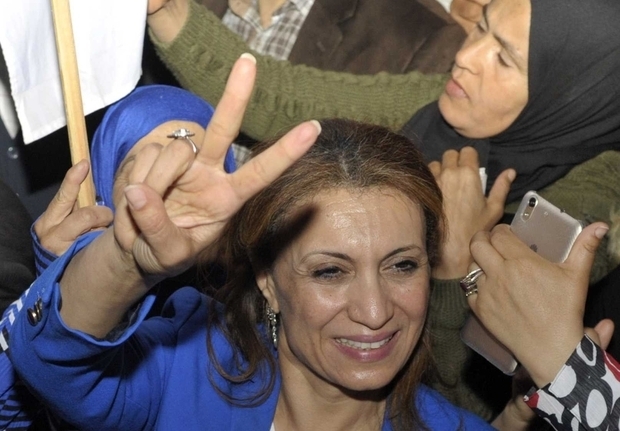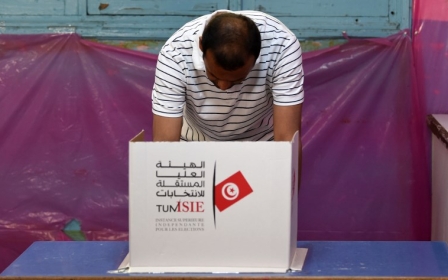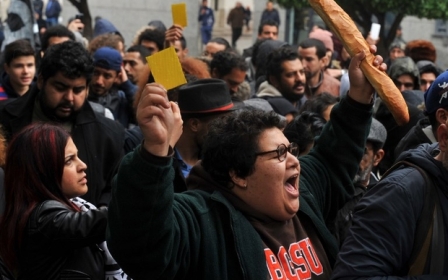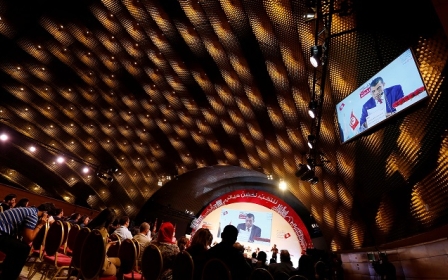Tunisia’s political mosaic signals uncertainty after local elections
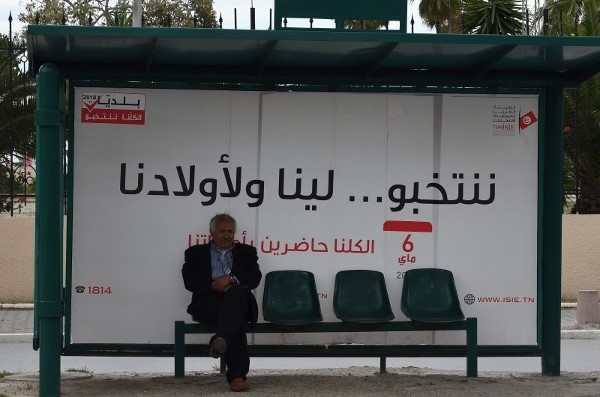
A highly fragmented political scene emerged from Tunisia's municipal elections. The surprise victory of independent candidates may challenge the longstanding Ennahda-Nidaa Tounes alliance ahead of next year's parliamentary and presidential elections.
Tunisians awoke to a surprise result in the polls on 6 May. The independent lists garnered most votes around the country (32.9 percent) followed by Islamist party Ennahdha (28.6 percent) and the secularist Nidaa Tounes (22.17 percent), based on official figures issued by the Independent Electoral Commission (ISIE).
Diverse political map
In an interestingly diverse map of political forces, there was no absolute majority for any party. However this elections could herald the emergence of a new political generation.
The electoral race saw a plethora of 2,074 electoral lists - including political parties, independents and coalitions - across 350 constituencies, with the candidacy of 57,000 contenders, half of them women and young people.
The newly elected members of the municipal councils include around 47 percent female local councillors, 37 percent under 35 years old and 63 percent under 45, injecting new blood into Tunisian political life.
Mayors and their deputies have to belong to both sexes. Either the mayor or his deputy has to be under the age of 35, based on the local government code adopted just days before the voting.
The high abstention and good showing by the independents in part indicate the general disgust with the political class, particularly the growing criticism of Ennahda and Nidaa Tounes
This is the mosaic that came out of these local polls which recorded a poor participation rate at 35.5 percent, and a youth boycott of the vote, amid widespread anger over low living standards, high unemployment, repeated price hikes and a sluggish economy.
The high abstention and the good performance by the independents indicate, in part, the general disgust with the political class. Recently, there has been growing criticism of Ennahda and Nidaa Tounes, which are sitting together in a governing coalition. The turnout in last Sunday’s vote was much lower than in previous post-revolution elections. The two major parties gained hundreds of thousands fewer votes than in parliamentary elections in 2014.
Though ranking second, Nidaa Tounes got 800,000 fewer votes than its tally in 2014 when it beat Ennahda, reflecting a loss in confidence from its electoral base. Ennahda managed to retain an active electorate and largely performed well, notably in the south, and picked up in the east, especially along the border with Algeria.
An odd alliance
While the two ruling parties may still govern in a public front to hold their odd alliance together, it is uncertain if the Nidaa Tounes- Ennahdha coalition will stay or split in light of the election's outcome. The resulting political fragmentation indicates complicated negotiations at the local level.
The major parties are expected to hold talks aimed at keeping their coalition together. Some observers say the result will depend on Ennahdha's ability to negotiate and rally coalitions. The party's leadership has repeatedly hinted that it hoped to extend the alliance locally.
The upcoming negotiations could put the alliance across the country's municipalities to test. That, in turn, could possibly influence the political balance at the national level ahead of the planned presidential and legislative elections next year.
The newly elected will face a frustrated populace who lost faith in their leaders, waiting for a real change since the 2011 revolution
The independents, who came before or closely behind the ruling parties in several towns, will play a key role in the municipal councils. The newly elected members will face a frustrated populace that has lost faith in their leaders, waiting for a real change since the 2011 revolution, and now expects prompt implementation of electoral promises.
While there is some hope of restoring public confidence in democratic participation and establishing local governance, high expectations could be confounded by low municipal council budgets.
Despite this, there is an opportunity for a renewal of the political elites by putting faith in people who are not affiliated with either traditional party.
A critical phase
In many cases, the independents were elected on a trust basis, especially in small towns, as candidates were known to constituents and perceived to be honest, competent individuals not associated with political parties.
But the independent lists are also a varied group: some may keep their distance from the stronger political groups whilst others may coordinate closely with the major parties.
Tunisia is likely to enter a critical phase as elected officials will be under pressure as they will be forced to run the municipalities without a clear majority, leading to possible conflict between political forces in handling local governance. This could hinder the functioning of the councils.
Since the independent candidates do not act as a bloc, their win in the elections may not convert into a proportionate degree of control of the country’s 350 constituencies.
The surfacing of independent lists, adding to the countless small, weak and scattered parties, necessarily opens up a space for coalitions or mergers. Bearing in mind the tiny proportions of vote that most of these parties obtained in the polls, they may well have to join forces in order to have some political weight.
Coalitions could be made between independent lists and small parties to form an opposition, or the independents could decide to ally with either of the ruling majority parties. And again, the question remains whether Nidaa Tounes and Ennahdha will stick together after the local elections in the new political landscape.
That should tell what the country's balance of power will be going forward.
- Alessandra Bajec is a freelance journalist based in Cairo. Between 2010 and 2011, she lived in Palestine. Her work has appeared in rt.com, CounterPunch, IRIN and the European Journalism Centre’s magazine among others.
The views expressed in this article are the author’s own and do not necessarily reflect the editorial policy of Middle East Eye.
Photo: A Tunisian man waits for a bus in front of a municipal elections awareness campaign poster in Tunis on 4 May, 2018. Arabic reads: "We vote for ourselves and our children.. we are all present with our voices." (AFP)
New MEE newsletter: Jerusalem Dispatch
Sign up to get the latest insights and analysis on Israel-Palestine, alongside Turkey Unpacked and other MEE newsletters
Middle East Eye delivers independent and unrivalled coverage and analysis of the Middle East, North Africa and beyond. To learn more about republishing this content and the associated fees, please fill out this form. More about MEE can be found here.



